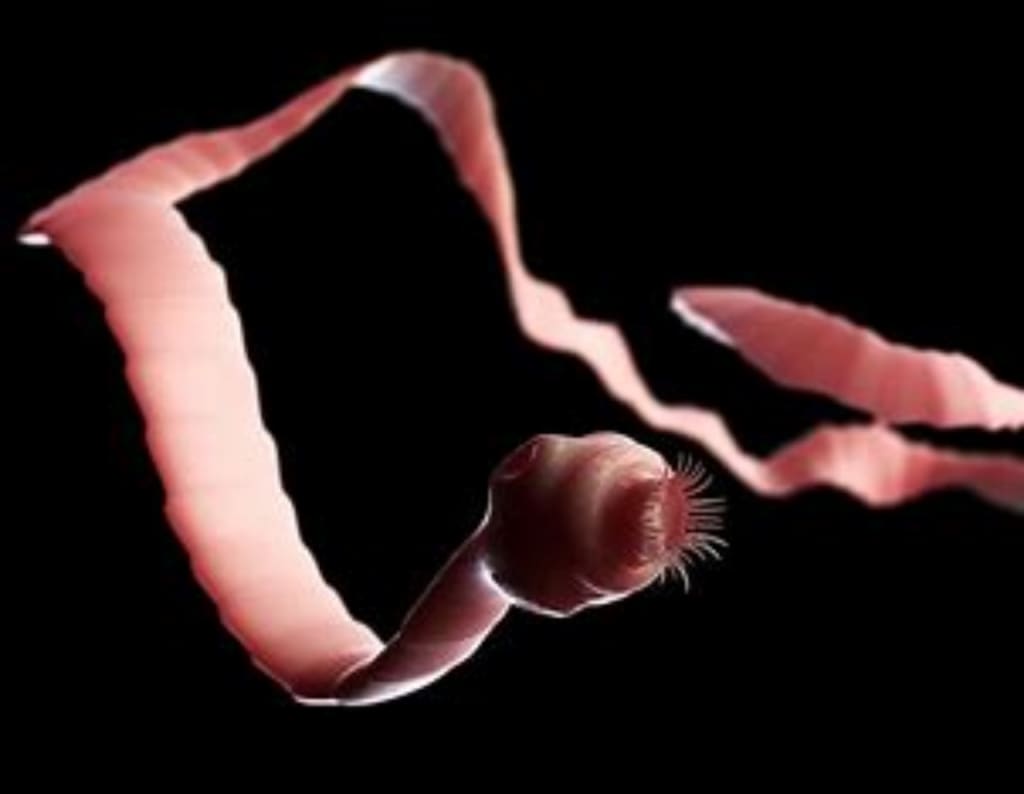Parasites Disease Control and Prevention
Effective control and prevention of parasitic diseases require a combination of measures, including environmental, behavioral, and medical interventions.

Parasites are a diverse group of organisms that live on or inside another organism (known as the host) and rely on the host for survival. While many parasites are harmless, some can cause serious health problems in humans and animals. This article will explore the world of parasitic organisms, including their life cycle, transmission, and impact on human health.
Types of Parasites:
Parasites can be classified into three main categories based on their size and complexity: protozoa, helminths, and ectoparasites.
Protozoa: These are single-celled organisms that can cause diseases such as malaria, amoebic dysentery, and toxoplasmosis. They are typically transmitted through contaminated food or water or through the bite of an infected insect.
Helminths: These are parasitic worms that can infect the gastrointestinal tract, lungs, or other organs. Examples include roundworms, tapeworms, and flukes. They are typically transmitted through ingesting contaminated food or water or through skin penetration.
Ectoparasites: These are parasites that live on the outside of the host's body, such as lice, fleas, and ticks. They can cause skin irritation and transmit diseases such as Lyme disease and typhus.
Transmission of Parasites:
Parasites can be transmitted through various means, including ingestion, skin penetration, inhalation, and contact with bodily fluids or infected animals. Some parasites require a secondary host or vector, such as a mosquito or flea, to complete their life cycle.
Symptoms of Parasitic Infections:
The symptoms of parasitic infections can vary widely depending on the type of parasite involved, the severity of the infection, and the individual's immune system response. Common symptoms include abdominal pain, diarrhea, nausea, weight loss, fatigue, fever, skin rash, and muscle aches.
Prevention of Parasitic Infections:
Preventing parasitic infections can involve various strategies depending on the type of parasite and its mode of transmission. Here are some general tips that may help prevent parasitic infections:
Practice good hygiene: Washing your hands frequently with soap and water, particularly before eating or preparing food, can help prevent the transmission of many types of parasites.
Cook food properly: Cooking meat to the recommended temperature, washing fruits and vegetables thoroughly, and avoiding raw or undercooked foods can help prevent infections caused by food-borne parasites.
Drink clean water: Drinking safe, clean water can help prevent parasitic infections caused by water-borne parasites. Boiling water, using a water filter, or treating water with chlorine or iodine tablets can help make water safe to drink.
Protect yourself from insect bites: Using insect repellent, wearing long-sleeved clothing, and sleeping under insecticide-treated bed nets can help prevent infections caused by insect-borne parasites such as mosquitoes or ticks.
Practice safe sex: Using condoms during sexual activity can help prevent sexually transmitted infections caused by parasites such as trichomoniasis.
Avoid contact with contaminated soil: Wearing shoes or sandals when walking on soil or sand, particularly in areas where parasitic infections are common, can help prevent skin-penetrating parasites such as hookworms.
Treat pets for parasites: Treating pets for parasites such as fleas, ticks, and worms can help prevent transmission of parasites to humans
Treatment of Parasitic Infections:
Treatment of parasitic infections can vary depending on the type of parasite involved and the severity of the infection. In some cases;
Medications: Various medications are available to treat parasitic infections, including antiparasitic drugs such as mebendazole, albendazole, ivermectin, and praziquantel. The specific medication used will depend on the type of parasite involved.
Surgery: In some cases, surgical removal of parasites or infected tissue may be necessary to treat parasitic infections.
Supportive care: In cases of severe infection, supportive care such as intravenous fluids or blood transfusions may be necessary to stabilize the patient.
Prevention of complications: Treatment may also involve management of complications caused by the infection, such as anemia or dehydration.
Natural remedies for parasitic infections:
There is some evidence to suggest that certain natural remedies may be helpful in treating parasitic infections, it's important to note that natural remedies are not a substitute for medical treatment and should be used under the guidance of a healthcare professional. Here are some natural remedies that have been studied for their potential antiparasitic effects:
Garlic: Garlic has been shown to have antiparasitic activity against a range of parasites, including giardia, Entamoeba histolytica, and Cryptosporidium. It is thought to work by disrupting the membrane of the parasite and inhibiting its growth.
Wormwood: Wormwood is a plant that has been traditionally used to treat parasitic infections. It contains a compound called artemisinin, which has been shown to have antiparasitic activity against a range of parasites, including malaria and Schistosoma.
Cloves: Cloves contain a compound called eugenol, which has been shown to have antiparasitic activity against a range of parasites, including giardia, Entamoeba histolytica, and Cryptosporidium.
Papaya seeds: Papaya seeds contain an enzyme called papain, which has been shown to have antiparasitic activity against a range of parasites, including tapeworms and amoebas.
Grapefruit seed extract: Grapefruit seed extract has been shown to have antiparasitic activity against a range of parasites, including giardia and Entamoeba histolytica.
Coconut oil: Coconut oil has been traditionally used to treat parasitic infections due to its antimicrobial properties. Some studies have suggested that coconut oil may have antiparasitic effects against some types of parasites.
Conclusion:
Parasitic infections can cause a wide range of health problems in humans and animals. By practicing good hygiene, proper food handling and preparation, and taking measures to avoid exposure to contaminated environments, you can help reduce the risk of parasitic infections. If you suspect that you have a parasitic infection, it's important to seek medical attention for proper diagnosis and treatment.
About the Creator
ZAMAL UL ALAM
I am constantly pushing the boundaries of what is possible in the digital space, always seeking new and innovative ways to tell stories and engage with audiences.
Enjoyed the story? Support the Creator.
Subscribe for free to receive all their stories in your feed. You could also pledge your support or give them a one-off tip, letting them know you appreciate their work.






Comments
There are no comments for this story
Be the first to respond and start the conversation.